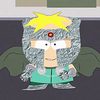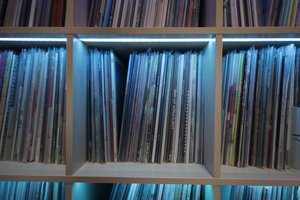A nice lamp that would look normal in any living room and be acceptable to my wife is important to me. So when I discussed this with my wife I was surprised when she began helping me choose the lamp. The first lamp I found is an Ikea Borbby Lantern and an instructable how-to etch the glass to make it more opaque. The opaque glass should allow for enough light to be visible so the lamp is useful but also hide the electronics inside.
The basic operation of the lamp is not overly complex. The Fubarino Mini can use DHCP to get it's initial network settings. It then connects to a pre-configured MQTT server and configuration topic. This topic will allow the Fubarino to reconfigure itself to subscribe to the appropriate topic for commands and to publish its sensor data to the appropriate topics. The command topic would tell the Fubarino how to control the LED lighting sequence. The sequence would carry some kind of meaning. Such as flashing red could mean please pay attention something drastic is about to happen.
The use of MQTT will allow multiple command sources such as Misterhouse, Node-Red, shell scripts and/or Homeseer 3, to issue commands and listen to data. Additional sensors could be added to the Fubarino and it would publish this information to the appropriate topic for other processes to use.
This project will require an Borbby Lantern, an AC lamp kit, an AC/DC power supply, a Fubarino Mini, RGB LED strips, LED drivers, and a network interface. I like the larger Borbby lantern as it has plenty of room for everything and the LED strips will be positioned in the corners. The Fubarino Mini and network interface will sit, inside, at the base of the lamp. The etched glass will hide from view everything inside the lantern. The bulb can either be controlled by a relay or perhaps a Cree or Hue wireless bulb instead.. The main purpose of the bulb is as a source of light. An LED bulb would be a good choice as this would reduce the amount of heat being generated.
 Neil Cherry
Neil Cherry

 blinkingthing
blinkingthing
 Thomas Chanon Wangtrirat
Thomas Chanon Wangtrirat
 Petri Varsa
Petri Varsa
 RP Hobbyist
RP Hobbyist
I have working UNO32 & MQTT code working But now I've got the initial MQTT code compiled and running on the Fubarino Mini with the WIZ550io board. It was a bit difficult to find a compiler version that would work with both the UNO32 and the Fubarino Mini (mpide 0023 20140821). Living with old (0.23) and new (1.50) Arduino environments is annoying. At the moment it's old until I figure out all the new differences.